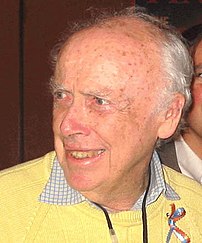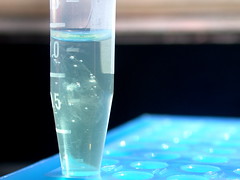A new article in Ancestry Magazine, “Meeting My New Family,” details a recent meeting of genetic relatives in Chicago. The author is Howard Wolinsky, who has written other articles in the field of genetic genealogy (see, for example, an article in EMBO about 2 years ago). As Howard describes, the meeting wasn’t a traditional family reunion:
“We are a new kind of cousin. Until a few days ago, we were strangers who just happened to have had our DNA analyzed. Then we discovered we matched one another to varying degrees. Most of us have common Jewish connections. And we learned that we come from relatively rare branches of the human DNA tree. Our mothers’ mothers came from the HV branch. Our fathers’ fathers came from the G group.”




